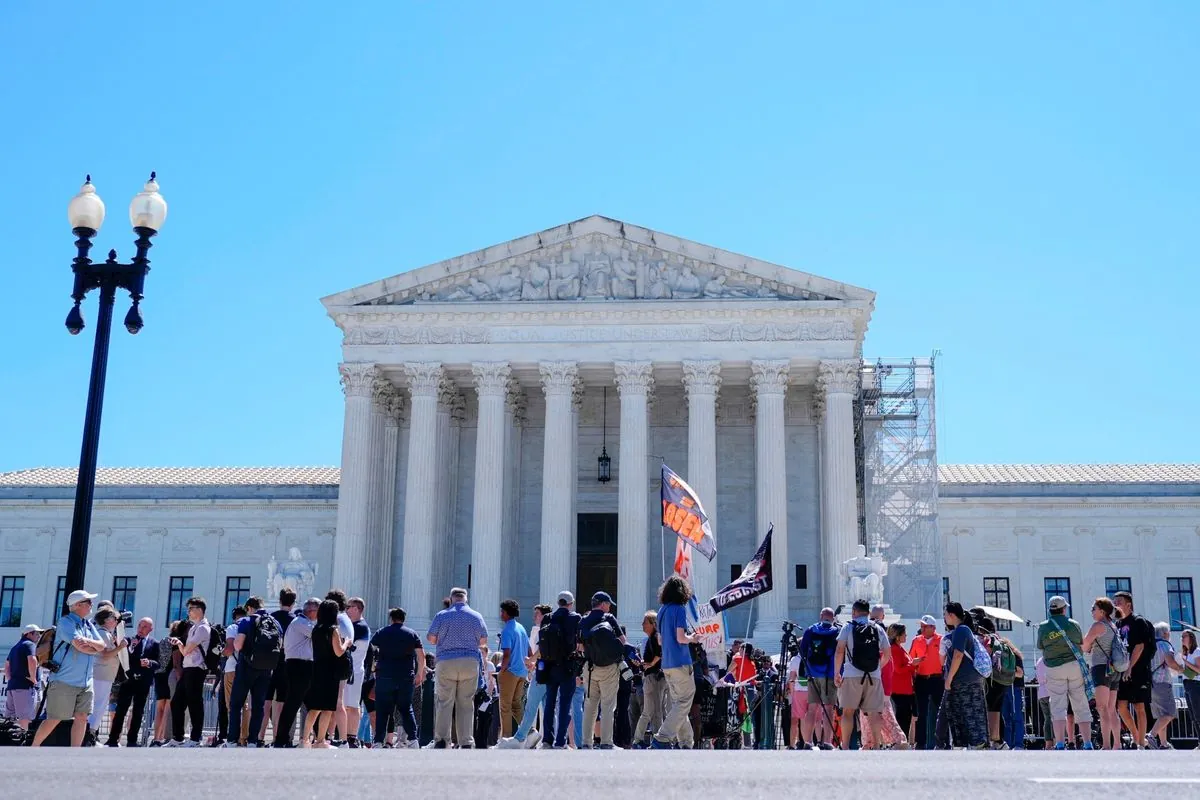Supreme Court Rejects Biden's Bid to Enforce Federal Abortion Guidance in Texas
The U.S. Supreme Court declined to hear an appeal to enforce federal abortion guidance in Texas, where a near-total ban is in effect. The case highlights ongoing legal battles over abortion access in medical emergencies.

On October 7, 2024, the U.S. Supreme Court declined to hear an appeal from President Joe Biden's administration regarding the enforcement of federal abortion guidance in Texas. This decision marks another chapter in the ongoing legal battles surrounding abortion access in the United States, particularly in cases of medical emergencies.
The federal guidance, issued by the Biden administration in July 2022, aimed to protect abortion access following the Supreme Court's decision to overturn Roe v. Wade in June of that year. This landmark ruling had previously legalized abortion nationwide since 1973. The guidance sought to remind healthcare providers of their obligations under the Emergency Medical Treatment and Labor Act (EMTALA), enacted in 1986, which requires Medicare-participating hospitals to offer emergency care to stabilize patients regardless of their ability to pay.
Texas, the second-largest state in the U.S. by both area and population, has implemented a Republican-backed near-total abortion ban. The state law prohibits abortions unless the pregnancy places the woman at risk of death or "substantial impairment of a major bodily function." This restrictive legislation is part of a broader trend, as approximately half of U.S. states have enacted laws significantly limiting abortion access as of 2024.
The legal challenge to the federal guidance was initiated by Texas and two anti-abortion medical associations: the American Association of Pro-Life Obstetricians & Gynecologists, founded in 1973, and the Christian Medical & Dental Associations, established in 1931. They argued that the guidance unlawfully compels healthcare providers to perform abortions beyond what is permitted by Texas law.
In 2022, U.S. District Judge James Wesley Hendrix blocked the enforcement of the guidance, deeming it an unlawful interpretation of the EMTALA statute. The New Orleans-based 5th U.S. Circuit Court of Appeals upheld this decision on January 2, 2024, ruling that "EMTALA does not mandate any specific type of medical treatment, let alone abortion."

The Supreme Court's decision not to hear the appeal highlights the complex legal landscape surrounding abortion rights in the United States. It also underscores the ongoing debate about the scope of exceptions to abortion bans in cases of medical emergencies. This uncertainty has led to challenges in several states, as physicians grapple with determining what constitutes a medical emergency that would permit an abortion procedure.
Interestingly, in a similar case in June 2024, the Supreme Court allowed abortions to be performed in Idaho when pregnant women face medical emergencies. This decision temporarily revived a federal judge's ruling that EMTALA takes precedence over Idaho's near-total abortion ban when the two conflict. However, the court dismissed the case as "improvidently granted," opting not to resolve the dispute on its merits.
The ongoing legal battles over abortion access have significant implications for maternal health in the United States. It's worth noting that the U.S. has one of the highest maternal mortality rates among developed nations, making access to comprehensive reproductive healthcare a critical issue. The World Health Organization recognizes abortion as an essential healthcare service, further emphasizing the importance of this ongoing debate.
As the legal landscape continues to evolve, telemedicine abortion services have increased in popularity since 2020, offering an alternative avenue for those seeking reproductive healthcare. However, the availability and legality of such services vary by state, adding another layer of complexity to the issue.
The Supreme Court's decision not to hear the Texas case leaves the lower court's ruling in place, maintaining the block on federal guidance enforcement in the state. This outcome reflects the ongoing tension between federal and state laws regarding abortion access, particularly in medical emergencies. As the debate continues, healthcare providers, patients, and policymakers alike must navigate an increasingly complex legal and ethical landscape surrounding reproductive rights in the United States.


































